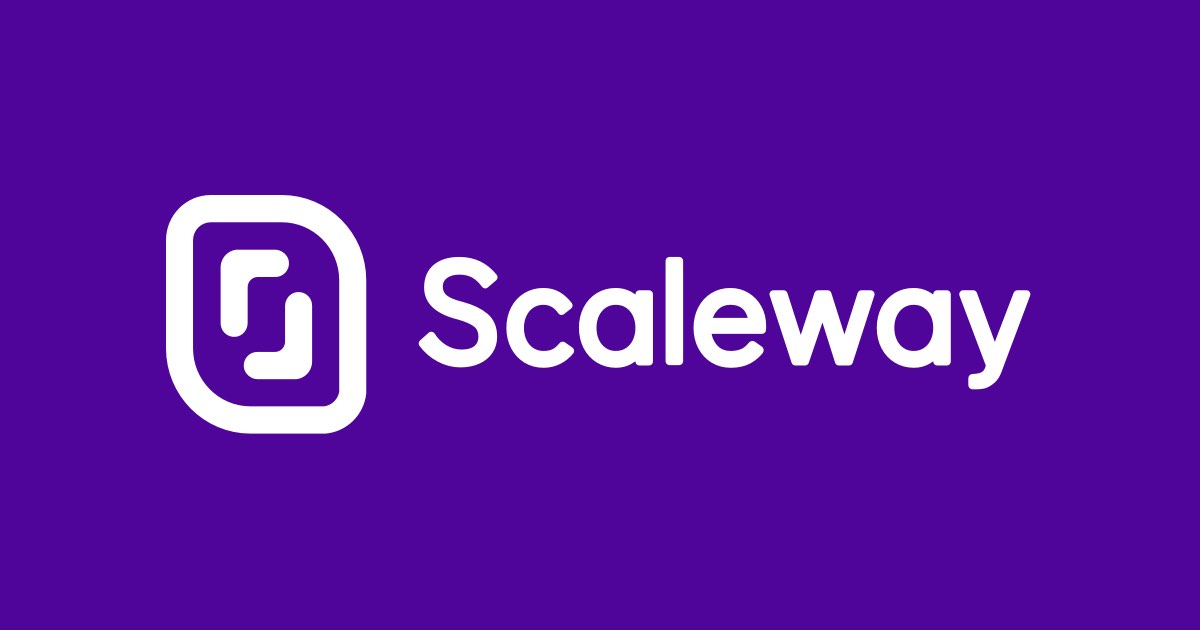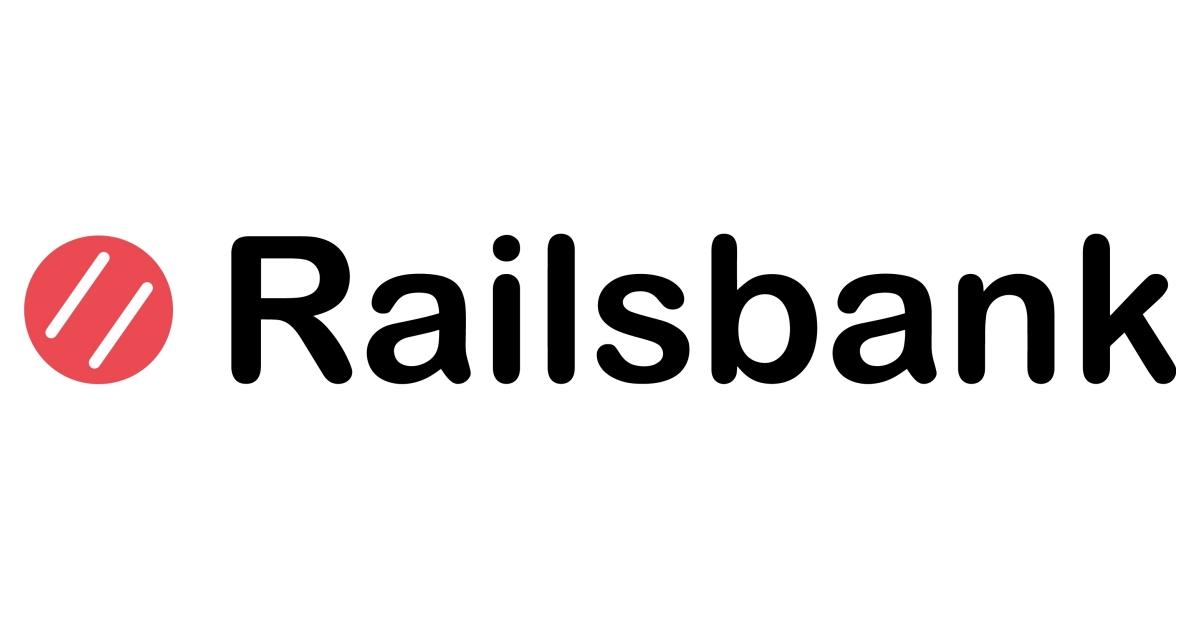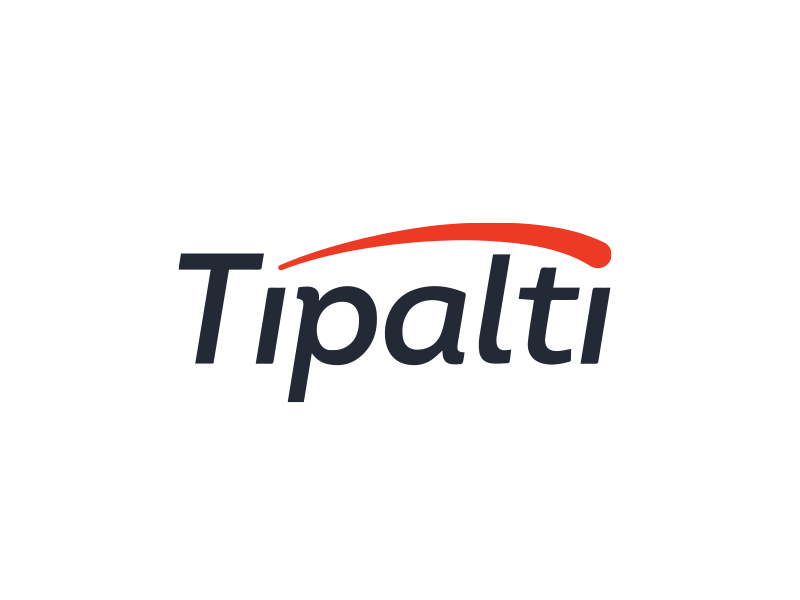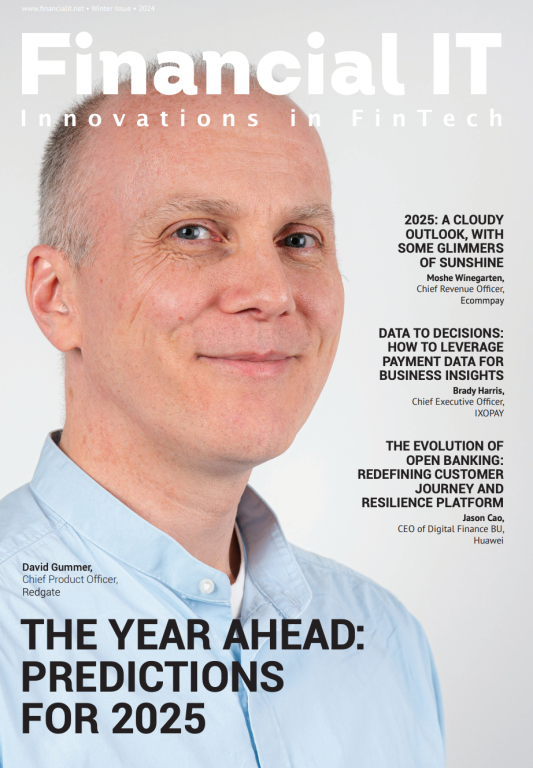Published
- 05:00 am

Encompass Corporation, the provider of intelligently automated Know Your Customer (KYC) solutions, today announces its expansion into North America, with office headquarters based in New York.
The expansion will allow Encompass to better serve the needs of existing global clients with a presence in North America, as well as secure new clients and partnerships in the region, in a marked effort to become the undisputed lead platform for automated, corporate KYC due diligence worldwide.
Alex Ford has been appointed President, North America, overseeing all aspects of the GTM, driving business growth and working with customers, partners and the Encompass team to transform KYC with automation in financial institutions and other regulated entities. Encompass has received various notable awards recognition, including ‘Best Solution’ category for Customer Onboarding - Regulation Asia Awards for Excellence, shortlisted in the British Bank Awards, winner of Red Herring’s Top 100 Europe Award and regional winner at this year’s Barclays Scale Up Entrepreneur of the Year.
Joining in 2012, Alex has held Executive responsibility for several business functions at Encompass Corporation including Customer Success, Operations, Marketing, Product and Delivery. From 2015 to 2020, Alex was based in Glasgow with the launch and expansion of the UK operation. Most recently as VP Product and Marketing she was based in Sydney, before taking up leadership of the North America business in New York.
Joining Alex in the US will initially be six senior staff members before increasing to more than 10 by the end of 2021, and doubling again in 2022. This hiring initiative falls in line with Encompass’s commitment to growth, and the firm has already seen a sharp rise in global staff numbers and a significant expansion of the senior team over the last 12 months.
Anamaria Meauta, who was part of the core team that established KYC as-a-service for Refinitiv, will join Encompass as Head of Operations for North America. Alongside Howard Dilworth an experienced sales leader from Exiger, Fenergo and Alacra, who was recently announced as Head of Sales, North America.
Alan Samuels, VP, Product, already based in New York, means that two of Encompass’ executive team (Alan and Alex) will be local, affirming Encompass’ commitment to the market.
Alex Ford, President North America, said, “Encompass is diving into the North American market following an extremely successful 24 months, defined by new hires, partnerships and boosted revenue - an incredible achievement given the challenges posed by the pandemic.
“We will use our new presence in the US to better serve our existing global customers who already have divisions or branches in North American territories, whilst simultaneously securing new clients and partnerships and strengthening our foothold in the market for automated KYC technology.”
Wayne Johnson, CEO said, “The AML2020 Act has put an even greater focus on KYC in North America. Our rapid growth in the UK - known for rigorous KYC regulation, and a hub for RegTech has enabled us to develop a highly relevant technology solution and we want to expand to where there is a great need, with the evolving US market ripe for KYC automation.”
Related News
- 02:00 am

RegTech company, Napier, provider of advanced anti-financial crime compliance solutions, has announced that integrated point-of-sale (POS) and payment solutions startup, Qashier, is the latest to adopt its anti-money laundering (AML) technology.
Having recently applied for the Major Payment Institution license under the Singapore Payment Services Act (PSA), Qashier will use Napier’s Transaction Monitoring, Client Screening, Risk-Based Scorecard and Client Activity Review tools to help identify suspicious activity as it happens, and comply with Monetary Authority of Singapore (MAS) regulations.
Founded by Christopher Choo and Frank Zhao in February 2019, Qashier’s advanced platform powers small and medium sized retail and F&B businesses by combining a smart POS system, integrated payment acceptance, and advanced software solutions which include table management, online ordering and customer loyalty.
Eric Peh, Head of Compliance at Qashier, said: “The Government of Singapore is aiming to be a cashless economy by 2025, yet many small businesses are still struggling with the cost and complexity of standard POS systems. At Qashier, we are experiencing heightened interest from a variety of businesses for our technology and as we continue to expand, it is crucial to have an AML offering that will scale and grow with us, and allow us to play our part in preventing financial crime. Napier’s solution not only satisfies that need, but the platform is also customised to our requirements, something that we couldn’t find in other vendors.”
Named as Best AML/CTF Solution in the Regulation Asia Awards for Excellence last year, Napier works with financial organisations around the globe to provide an AI-enhanced intelligent compliance platform. Its presence in APAC was further strengthened earlier this year with the opening of a new Kuala Lumpur base, adding to its offices in Singapore, London, North America, Australia and Dubai.
Robin Lee, Head of APAC at Napier, said: “As we head further towards a cashless society, we’re mindful that this also opens up new opportunities for criminals. It’s imperative that financial service providers can leverage the best technology available to stay ahead of the threat with robust compliance systems. Through our AI-enhanced technology, organisations can make validated decisions with speed and accuracy, rapidly strengthening their AML defences and compliance capabilities.”
Related News
- 09:00 am

Global venture capital firm Antler has announced that it has raised over $300m to date. The firm invests globally in companies at the pre-seed stage, and intends to now provide continued support investing up to Series C.
Antler has put together a team to oversee on-going investments, led by Martell Hardenberg, Co-Founder of Lazada; Teddy Himler, formerly of SoftBank; Stefan Jung, Chief Investment Officer at Antler, and previously MD at Rocket Internet Southeast Asia; and Navi Singh, a Researcher at MIT's Department of Mechanical Engineering.
Antler seeks to build on the success of its regional pre-seed fund model, currently in 15 countries across 5 continents, and with 350 investments in technology startups made.
Antler has closed over $300m to date. Investors include Schroders, Vækstfonden, Phoenix Group and others.
Global venture capital firm Antler has announced that it has closed over $300m to date, allowing it an opportunity to provide continued support to its companies in subsequent funding rounds. Investors in the funds include Schroders, Vækstfonden, and Phoenix Group.
Antler is on a mission to fundamentally improve the world by enabling and investing in the world's most exceptional people. The primary focus of the firm will remain investing at the pre-seed stage, with the firm now also having the ability to offer its portfolio companies follow-on capital as they grow and scale, up to Series C.
Magnus Grimeland, CEO and Founder of Antler, said “We continue to provide support for our founders from the earliest stages, and are thrilled to be able to continue investing in them as they grow. We look forward to backing even more entrepreneurs that are redefining industries in the future.”
Antler is continually developing and expanding its senior team, and its global presence. To this end, Antler has recruited new partners Naman Budhdeo, Erik Jonsson, Jiho Kang, and Subir Lohani to lead its new Canada, Vietnam, Korea, and Indonesia teams respectively.
Teddy Himler from SoftBank also joins as a Partner of the later-stage investment team.
Antler has invested in over 350 companies globally across over 30 different industries since 2018. Of these companies, 40% have at least one female co-founder, with 70 nationalities represented.
Antler continues to invest in its portfolio companies as they scale. The firm has a global network of over 600 expert advisors, and an online platform of resources, tools and supports its portfolio companies with introductions to global investors, hands-on assistance with new market entry, and access to a global network of expert advisors.
In providing continued support and investment, Antler confirms its position as a long-term partner for exceptional entrepreneurs -- from the outset of their journey, to the later stages as they scale.
Antler also intends to now invest in a number of companies from outside of its portfolio at seed and Series A stages. Antler has put together a team to oversee on-going investments, led by Martell Hardenberg, Co-Founder of Lazada; Teddy Himler, formerly of SoftBank; Stefan Jung, Chief Investment Officer at Antler, and previously MD at Rocket Internet Southeast Asia; and Navi Singh, a Researcher at MIT's Department of Mechanical Engineering.
This on-going evolution is built on what we believe to be a strong structural advantage in deal flow sourcing from regionally focused early-stage investments across 15 countries in 5 continents, including: Australia (Melbourne and Sydney), Canada (Toronto), Denmark (Copenhagen), Germany (Berlin), India (Bangalore), Indonesia (Jakarta), Kenya (Nairobi), Norway (Oslo), Sweden (Stockholm), Singapore, South Korea (Seoul), The Netherlands (Amsterdam), The UK (London), US (Austin and New York), and Vietnam (Ho Chi Minh).
Lieven Debruyne, Global Head of Distribution at Schroders said, “As a longstanding partner and investor in Antler, we are delighted to continue our investment in Antler. It is a unique opportunity to gain exposure to a global growth portfolio of innovative technology companies, and to ensure a steady stream of capital is being invested in companies that will define how we all live and work in the future”
Lars Nordal Jensen, Senior Director at Vækstfonden said, “We are thrilled to continue our commitment to Antler. We have previously invested in Antler, and have been delighted with the firm’s overwhelmingly positive contribution to the technology ecosystem since their market entry. In Vaekstfonden we want to help drive innovation and new technology, and therefore we are very pleased to see Antler continue its commitment to supporting innovative founders throughout their journey”
Related News
- 06:00 am

The biometric payment card is a major innovation in payment technology, currently being rolled out across France, providing consumers enhanced security without sacrificing convenience
70% of French consumers that have heard of biometric payment cards want one. This is just one finding from a study conducted in August 2021 by world leading biometrics company Fingerprint Cards (Fingerprints™) in collaboration Kantar, pointing to the growing appetite amongst French consumers for biometric payment cards.
In an online survey of 1,000 consumers in France, 59% would say ‘yes’ to a biometric payment card, compared to 50% in 2019 and 51% in 2020. When asked to what lengths they would go to get a biometric payment card, 52% would switch banks, which rose to 64% in some areas of France, and 67% among the 18–34-year-olds. Also, 55% would pay an average of EUR 3.20 more per month to have one, up from 50% in 2020.
According to a previous survey by Fingerprints in 2020, consumers have a ‘card-first’ approach to in-store payments (73%), with smartphones and mobile wallets accounting for 2% of transactions.
A significant factor behind the growing eagerness for biometric payment cards amongst interested French consumers is the unique balance of security and convenience they bring to in-store payments.
- Security: 71% of French consumers that are interested in this technology would feel safer when using a biometric card, even if they lose it, as use is limited to the authorized user.
- Ease: With consumers worried about forgetting PINs, 42% are drawn to the simplicity of a biometric payment card as it does not require one for daily use.
- Hygiene: Since the pandemic, 1 in 5 consumers are worried about the health risk of physical surfaces, and 40% of French consumers want a biometric payment card for hygiene reasons as it removes the need to touch a PIN terminal.
- Convenience: 37% of French consumers think the EUR 50 contactless payment limit should be removed. With biometric payment cards, there is no contactless limit to in-store payments.
“It’s exciting to see the high interest among consumers, and in a country first to roll this out in a larger scale. It took time and considerable expertise to equip payment cards with fingerprint sensors. 2021 and beyond will see biometric cards deployed by banks and financial institutions around the world, for the benefit of their business, merchants and consumers. Banks need to understand the technology itself to make informed decisions, to offer customers a card that enhances the shopping experience, rather than hindering it.” said Michel Roig, SVP Business Line Payments & Access at Fingerprints.
For more details on biometric payment cards please visit the website.
Related News
- 06:00 am

- of open banking
- European Open Banking Outlook provides the most comprehensive view to date of open banking progress in Europe’s six largest markets including the UK, Spain, Germany, France, Italy and the Netherlands
Yolt Technology Services (YTS), one of Europe’s leading open banking providers, has today launched its inaugural European Open Banking Outlook (EOBO) revealing huge growth potential for open banking, with 40% of banking customers across Europe’s biggest markets not currently using any open banking solution. YTS also sets out how this potential can be unlocked.
The EOBO, produced in partnership with the Centre for Economics and Business Research (CEBR) and experts from around Europe, tracks the progress of open banking across the continent’s six largest markets: Spain, the UK, Germany, France, Italy, and the Netherlands. YTS and CEBR commissioned Censuswide to survey nationally representative samples of more than 1,000 banking customers in each of these countries. Using four pillars:
- Openness - evaluates the degree to which relevant institutional and regulatory environments within each country support the open banking development.
- Availability - analyses how financial institutions have worked alongside third-party providers (TPPs) to enable customers to access open banking solution.
- Engagement - evaluates the extent to which bank customers in each country have made use of open banking.
- Impact - analyses the benefits that a range of open banking solutions have delivered to customers in each country, and the potential for wider use in the future.
The study also considers the different practical, operational, and cultural circumstances present in each market as important contextual factors for assessing the development of open banking.
Open Banking League Table Score
Rank | Country | Openness | Availability | Engagement | Impact | Overall score |
1 | UK | 81 | 82 | 32 | 33 | 64.5 |
2 | Spain | 48 | 62 | 86 | 71 | 63.1 |
3 | France | 37 | 51 | 64 | 47 | 47.9 |
4 | Germany | 40 | 43 | 28 | 55 | 43.8 |
5 | Netherlands | 49 | 34 | 55 | 38 | 40.8 |
6 | Italy | 44 | 28 | 35 | 56 | 39.7 |
Low adoption across all markets signifies huge growth potential
Over half of all respondents in both the UK (50.95%) and Germany (50.2%) are not using financial products or services facilitated by open banking. Spain has the smallest percentage of banking customer respondents not using open banking at all (23.5%) and attains the highest score for the Engagement pillar (86 out of 100), which may be due to the efforts made by some of the country’s largest banks to create and promote comprehensive open banking propositions, maybe in part due to historic screen scraping activities. It is evident there is much that banking and other financial services providers can learn from counterparts in countries where higher levels of engagement are already visible.
The growth potential for open banking across different markets is clear with 33% of banking customer respondents across six markets supportive of using open banking products and services in the future and 30% demanding to see more financial products and services that make use of open banking become more mainstream.
The Impact findings suggests wider adoption can be improved by education around the benefits of open banking and the security measures used to protect data and users. Most respondents (67%) say the ability to view transactions or savings across multiple accounts is ‘very useful’, but other benefits of open banking including the ability to group transaction, set saving objectives and share information for credit access, are less known among banking customers.
UK is leading in Openness and Availability, but Engagement and Impact are still low
When it comes to Openness, the UK has the highest overall score compared to other markets in Europe due to its supportive regulatory environment that stimulates innovation in banks and third-party providers (TPPs). The study reveals that only in the UK have policymakers and regulators extended the legal and regulatory foundation for open banking and created a framework based on cooperation. This includes the creation of the Open Banking Implementation Entity (OBIE) that plays an important role in encouraging collaboration across the banking industry to promote open banking, and a mandate from the Competition and Markets Authority (CMA) on API connectivity that ought to be implemented by banks.
The UK also scored high in Availability due in large part to its dominance of TPP registrations. There are currently at least 274 active TPPs registered in the six countries studied for the Outlook report and 63% of them (173) are registered in the UK. The availability pillar also assesses the number of account aggregation services linking to the top four banks in each country. The average number of connections between each of the UK’s top four banks and TPPs offering account segregation services is 12.5 compared to 8.0 in Spain and 2.5 in both Germany and Italy.
Notable results also include the stark difference between the Openness and Availability pillars and the Engagement and Impact pillars in the UK. While there is genuine support and a proactive regulatory environment for open banking to flourish, progress has been slowed by scepticism from banking customers around the benefits of open banking.
Nicolas Weng Kan, Chief Executive Officer at YTS, comments: “Our findings reveal the need and growing appetite for open banking, but the variation in levels of understanding and adoption show that much more work needs to be done to help customers enjoy the full benefits of open banking-facilitated products and services. Recent months have showed the power and impact of digitalised services, and in the wider financial services sector these have largely emerged due to consumer demand. Our Impact pillar shows that the demand is also there for open banking, and it’s now up to the financial services industry to meet that demand.
“There will be huge commercial rewards for banks and technology providers able to play an active role in this process – while those that fail to do so risk losing market share, profits and, eventually, any relevance to the needs of the growing numbers of bank customers who are embracing open banking.”
To read the full report, click here https://yts.yolt.com/whitepapers/european-open-banking-outlook-report
Related News
- 04:00 am

- The company cements its vision of a true multi-cloud strategy - leveraging the right infrastructure and pricing model for each workload
- Scaleway continues to enrich its cloud ecosystem with an increased PaaS offering, with essential and high-performance solutions
- Thanks to Kubernetes Kosmos, Kubernetes developers can now extend Kubernetes Kapsule beyond the compute infrastructure to any machine - bare metal products, colocated machines, or local infrastructure
Scaleway, the leading multi-cloud service provider for startups and developers, has today released in General Availability Kubernetes Kosmos, the first-of-its-kind multi-cloud managed Kubernetes engine.
Scaleway continues to disrupt the container world with this unique launch, enriching its PaaS cloud ecosystem with essential and high-performance solutions. With Kubernetes Kosmos, developers can now attach nodes on any cloud provider or local resource, whether or not other providers offer a managed Kubernetes solution - with a fixed price per cluster of €99 per month, regardless of the number of nodes.
With more than 1,300 companies already deploying Kubernetes to more than a third of Scaleway’s total infrastructure, the company is quickly becoming one of the leading names in the Kubernetes community - thanks to Scaleway’s Kubernetes Kapsule, its managed Kubernetes engine. Now, with Kubernetes Kosmos, Kubernetes developers can extend Kubernetes Kapsule beyond the compute infrastructure to any machine - Instances from any provider, Bare Metal products, colocated machines, or their personal infrastructure.
The norm for cloud natives
As public cloud adoption continues to accelerate, an increasing number of companies continue to embrace multi-cloud strategies - and this is largely because they offer companies the flexibility to choose the most appropriate solution for each specific need. Despite this approach becoming the norm for cloud native solutions, not all cloud providers are embracing this evolution, instead shifting increasingly toward a vendor lock-in strategy.
While most cloud providers are looking to trap their customers in a hybrid cloud model where they are locked into one cloud provider, including their on-premise infrastructure, Scaleway’s vision and promise is to facilitate a true multi-cloud strategy, going beyond simply leveraging infrastructure from multiple cloud providers to leveraging the right infrastructure and pricing model for each workload.
“Until now, most multi-cloud adoption was a result of opportunism - picking up infrastructure from one provider that another didn’t have, or in a geography where the other wasn’t present. With Kosmos, we are facilitating the transition to a true multi-cloud strategy, leveraging the same managed Kubernetes solution that developers have praised for its ease of use and performance, and taking it one step further.” Yann Lechelle, CEO Scaleway
The first of its kind multi-cloud managed Kubernetes engine
Kubernetes Kosmos is a unique way to engage a true Multi-Cloud strategy with managed Kubernetes across cloud provider resources. Startups and developers can now simplify their process with a single control plane instead of managing multiple clusters in different cloud providers. For a fixed price per cluster of €99 per month regardless of the number of nodes, Scaleway customers can attach external nodes hosted anywhere and manage them all from within our renowned control plane.
Kosmos benefits from the following features already available in Kapsule:
- Centralized monitoring
- Lifecycle automation
- Fully managed & redundant Control Plane
- Autoscaling pools for workload buffering
Dedicated Kosmos features:
- Manage cross-provider clusters
- Manage pools on any type of infrastructure - virtual machines, dedicated servers, colocated or on-premise infrastructure
- Take advantage of cross-provider scalability
- High availability - benefit from performance available across all cloud providers
Related News
- 06:00 am

Removing friction from KYC compliance to deliver faster, compliant customer journeys
Fenergo, the leading provider of digital transformation, customer journey and client lifecycle management (CLM) solutions for financial institutions, today announces that DNB Bank ASA will deploy its SaaS-based CLM solution to consolidate know your customer (KYC) and anti-money laundering (AML) operations across all business lines including corporate and institutional banking, personal market and private banking.
DNB Bank ASA is Norway's largest financial services group with 50 per cent market share and total combined assets of more than NOK 1.9 trillion. DNB has embarked on a multi-year project that will deploy Fenergo’s SaaS CLM platform to replace manual systems and processes for KYC and AML and digitalise the entire client lifecycle journey from onboarding to offboarding. The solution will enable relationship managers and advisors in Norway and across the Nordics to achieve a single customer view and deliver a fully integrated omni-channel user experience.
Kevin O’Neill, Head of EMEA, Fenergo, added: “We are delighted to partner with DNB Bank ASA and are focused on delivering the right outcomes together. Banks globally are under significant pressure to deliver exceptional customer experiences while satisfying evolving regulatory requirements. By deploying Fenergo’s SaaS CLM platform, DNB Bank ASA can streamline the entire end-to-end client lifecycle process, drive efficiencies, and reduce the costs associated with evolving regulation. In addition, this partnership further strengthens our community of clients within the Nordics region and enables Fenergo to deliver standardised solutions to market.”
Related News
- 03:00 am

Railsbank the leading global Embedded Finance platform has today announced the opening of its new Global Headquarters in Broadgate, London’s largest pedestrianised neighbourhood in the heart of the financial district.
Over the past 12 months, Railsbank has seen rapid growth, bringing on new clients globally. It has supported the launch of the first physical health-linked credit card with Paceline, enabled McLaren Racing and QNTMPAY to bring its new lifestyle bank to life, and enabled Status Money to move beyond its start as a financial advice app and to offer real financial services to its customers in the form of a crypto-rewards credit card. Reflecting this rapid growth, Railsbank has expanded its team from 4 staff in 2016 to over 450 globally today.
Railsbank’s new London HQ reflects the company's recent success and ambitions for the future, as well as reaffirming the company’s commitment to the capital and to the UK.
Nigel Verdon, Railsbank CEO commented: “Railsbank’s HQ has always been London and it’s at the heart of the company. It is important to us as a business to have our main office in one of the world’s major financial and business hubs and we remain committed to London and the UK. Despite how difficult the last 18 months have been for everyone, Railsbank has been able to maintain a strong trajectory, bringing the embedded finance revolution to an ever increasing number of customers.
Our new office is designed to support the unique demands of a hybrid workplace, allowing our team to have a more rewarding work / life balance with flexible working. With the new space, our growing team is better able to collaborate and meet with our customers face-to-face. We are ready to climb even higher over the coming year from our new base of operations”.
Related News
- 08:00 am

Today, Binance is proud to announce a multi-year partnership with renowned football team, S.S. Lazio. Binance will become the main jersey sponsor for the club. S.S. Lazio will become the launch partner for the Binance Fan Token Platform, available from October 13th.
By joining forces with Binance, LAZIO Fan Token will be issued via the Binance Launchpad to take their brand to the next level, and to create a more meaningful fan engagement experience for the club’s supporters—through unique and engagement-based rewards, interactivity, gamification and more.

S.S. Lazio, commonly referred to as Lazio, is a top Italian professional football team based in Rome. The club was founded in 1900 and has collected many prestigious titles, including a UEFA Cup Winners’ Cup, a UEFA Super Cup, two Italian Championships, seven Coppa Italia titles and three Supercoppa Italiana titles. Over the years, the club featured many world-famous players, such as Sinisa Mihajlovic, Diego Simeone, Roberto Mancini, Giuseppe Favalli, Alessandro Nesta, Tommaso Rocchi, Miro Klose, Ciro Immobile and many more. Lazio currently boasts more than 1.5 million supporters in Italy, and a digital fan base exceeding 2.5 million followers across their social networks.
Claudio Lotito, President of Lazio, commented: “Our agreement with Binance will allow us to extend our digital presence and connect with our fans and followers like never before. Engaging our fan base with emerging technologies and harnessing the reach of Binance opens up new horizons for our club’s brand activation and future support. With the help of Binance, we seek to bring S.S. Lazio fans who are around the world closer to the club. The LAZIO Fan Token truly brings our club’s players and their success closer to fans worldwide”.
Changpeng “CZ” Zhao, CEO and co-founder of Binance, commented: “Sports fans can take advantage of this revolutionary fan-engagement and gamification solution in many exciting ways. Fans can collect Binance Fan Tokens and rare NFT offerings, enjoy exclusive voting rights on certain club decisions reserved for fans, unlock one-of-a-kind Fan Badges and rewards based on their level of engagement, collect signed merchandise and even meet their favorite teams in person. Binance Fan tokens are an exciting way for fans to engage more meaningfully with their favorite teams and offer opportunities for teams to really embrace their fans in return.”
The official Lazio Fan Token (LAZIO) is a utility token providing fans with a way to engage with their favorite team. LAZIO will be available for all Binance users via the Launchpad from today and later via Spot, bank card purchases and P2P.
For further details on the LAZIO Launchpad and future team listings, visit the Binance Fan Token Platform.
Related News
- 05:00 am

Payables automation scale-up wil invest an estimated £100m over a five year period in the region, as it opens European headquarters in London following impressive growth in North America
Tipalti, the leading global payables automation platform, announces expansion into Europe with the opening of a London office - delivering the UK's first solution that automates the entire accounts payable (AP) process, while also executing global payments.
The unicorn, valued at $2 billion+, launches in the market following 83% YoY growth in North America. It estimates to invest £100m over a five year period, marking a key milestone in its international expansion. Tipalti helps high-velocity businesses eradicate manual payables processes - the most time-consuming function in the finance department - and has more than 1,500 customers including Amazon Twitch, National Geographic, Business Insider, Farmdrop, Hopin, Cazoo and Time Out.
Tipalti’s cloud-based solution has been fully localised for the UK - helping high-growth businesses streamline AP processes and execute global payments. Its end-to-end AP offering addresses the entire workflow, including supplier management, VAT compliance, procurement, invoice management, PO matching, self-billing, global payments, payment reconciliation and more. Its FCA-approved e-money licence gives businesses the ability to manage domestic and cross-border payments, and FX conversion within the holistic payables platform.
As UK businesses continue to grapple with the challenges brought about by the pandemic and Brexit, Tipalti launches at a critical time to allow finance teams to step away from manual financial operations, and focus on strategic initiatives to help businesses survive and thrive. New research from Tipalti supports this - revealing UK CFOs admit the pandemic (27%), and rapidly changing regulations and legislation (25%) are two of the top three things that have made their role more complex. And when asked how their role had changed in the last two years, over a quarter (27%) said they have increased responsibility to find new revenue growth, productivity and profitability opportunities, yet have more manual financial operations work (29%).
Tipalti Europe, which has opened offices in central London, will create 200+ UK jobs over the next three years, with over 40 hires across engineering, sales, customer success, compliance, and more filled by the end of 2021. It has already seen great traction in the market with over 50 customers. Adding the UK-based subsidiary to the Tipalti group allows it to focus on the market and expand its solutions, including regulated payment services, before expanding to other countries in Europe.
Europe’s fastest growing start-up Hopin, the event technology platform, has seen tremendous growth recently, helping its customers host immersive virtual, hybrid and in-person event experiences. Melissa Richards, Senior Accounts Payable Analyst at Hopin said: “The pandemic sparked a high demand for virtual events across the globe. This resulted in the finance team at Hopin manually processing lots of international payments - it was time consuming and complicated. We knew we needed a solution that would be able to scale with us and give us the visibility and overview needed to help grow the business. Tipalti has future-proofed our processes. Since we synced all our solutions in one bundle, we don’t have any manual intervention. Our workflow is quick and easy with all our payment processes in one central location - the days of juggling different systems and exporting files are long gone! With the implementation of Tipalti, we can continue to scale and not have to add more headcount to keep up.”
Committed to helping more high-velocity businesses in the UK, Tipalti moved its CMO of over seven years, Robert Israch, from San Francisco to London, to lead its European business as General Manager. Israch commented on Tipalti’s UK launch: “There’s a clear need and benefit for Tipalti’s technology in the UK. We know the strong desire for businesses in the market to scale, in fact almost a third (28%) of UK CEOs said international growth is a top priority in 2021 and beyond. However, time-consuming manual finance processes and piecemeal solutions are holding them back. We want to change this.
“We know, now more than ever, and in this current climate, finance teams need to be empowered with great technology that modernises finance departments and provides finance leaders with greater visibility and control. Tipalti’s scalable solution is purpose built to help businesses achieve their ambitious growth plans and meet changing needs, whilst also managing the major payables and financial operations challenges brought with this.”
Earlier this year, IDC MarketScape Named Tipalti a Worldwide Leader in mid market accounts payable automation. Kevin Permenter, research manager, Enterprise Applications at IDC said, “Finance teams that have enhanced visibility, flexibility, and agility in these uncertain times will find themselves well-positioned for future growth. The accounts payable function can be complex and fraught with inefficiencies for companies of all sizes. Automating AP is an essential element of any CFO’s strategy to modernise the finance organisation and focus on enabling business success. Tipalti’s robust solution prioritises efficiency across an end-to-end global payables workflow and supports AP and payment management in one cloud platform—helping finance scale and adapt to their business’ changing needs.”









